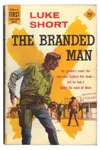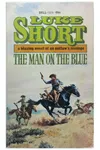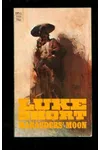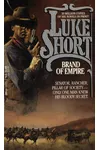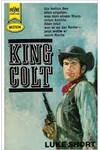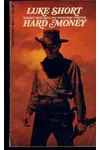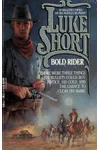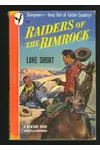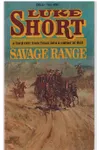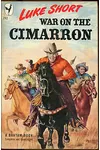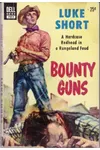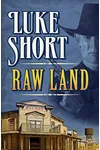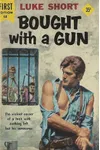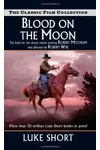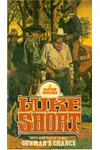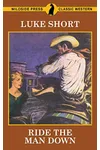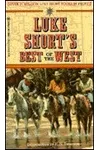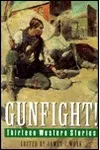Picture a rugged cowboy riding across the dusty plains, a tale of grit and glory unfolding—meet Luke Short, the pen name of Frederick Dilley Glidden, who brought the American West to life! Born in 1908, Short spun over fifty novels and hundreds of short stories, selling more than thirty million copies and earning the title 'Dean of Western authors.' His action-packed yarns, steeped in frontier drama, hooked readers and inspired Hollywood hits.
From his first novel in 1936 to his final works in 1975, Short’s stories of hard-riding heroes and cunning outlaws captured the spirit of the Old West. Let’s saddle up and explore the life, works, and lasting legacy of this Western legend!
The Making of Luke Short
Born in Kewanee, Illinois, Frederick Dilley Glidden didn’t start life with a six-shooter in hand. After studying journalism at the University of Missouri, graduating in 1930, he bounced between newspaper jobs, never quite finding his stride. The Great Depression pushed him to try fur trapping in Canada and assisting an archaeologist in New Mexico. Inspired by pulp magazines, Glidden adopted the pen name Luke Short—possibly unaware it echoed a real Old West gunslinger—and sold his first story and novel, The Feud at Single Shot, in 1935. With literary agent Marguerite Harper’s guidance, his career took off.
Short’s knack for storytelling likely came from his mother, a high school English teacher, who instilled a love for narrative. His early years in the pulps honed his craft, blending action, mystery, and vivid dialogue that would define his signature style.
Luke Short’s Unforgettable Stories
Short’s novels are like a wild ride through the frontier—fast-paced, gripping, and full of morally complex characters. His 1941 novel Gunman’s Chance (later retitled Blood on the Moon) became a noir-infused Western film in 1948, starring Robert Mitchum. It follows a drifter caught in a deadly range war, showcasing Short’s talent for psychological depth. Ramrod (1943), adapted into a 1947 film with Joel McCrea, tells of a woman defying a ruthless cattle baron, highlighting Short’s strong, independent female characters.
Ride the Man Down (1942), a tale of a lone man facing a brutal range war, landed at #16 on the Western Writers of America’s Top 25 Westerns list. Its 1952 film adaptation starred Rod Cameron. Station West (1946) mixes undercover intrigue with fistfights, adapted in 1948 with Dick Powell. Short’s style leaned on taut plots, snappy dialogue, and settings that felt alive, influenced by Western great Ernest Haycox. His stories stuck to familiar tropes but delivered predictable comfort, like catching up with an old friend.
Despite vision problems later in life, Short kept writing, dictating works like Paper Sheriff (1965), a gritty tale of a lawman battling a rustling clan. His ability to churn out engaging stories through adversity cemented his reputation as a master craftsman.
Why Luke Short Matters
Luke Short didn’t just write Westerns—he helped shape the genre. His novels, with over ten adapted into films, brought the frontier to millions, blending action with human drama. In the 1940s, his peak years, four films based on his books hit theaters in 1948 alone. Awards like the 1969 Levi Strauss Golden Saddleman and the 1974 Western Heritage Wrangler honored his contributions. Short’s influence extended beyond readers; he mentored writers like Brian Garfield, urging them to focus on character over clichés.
Though Westerns waned in popularity by the 1970s, Short’s legacy endures. His books, still in print, offer a window into the untamed West, and his storytelling grit inspires modern authors. From pulp pages to silver screens, Short’s tales remain a cornerstone of Western fiction.
- Born: November 19, 1908, Kewanee, Illinois
- Died: August 18, 1975, Aspen, Colorado
- Key Works: Gunman’s Chance, Ramrod, Ride the Man Down, Station West
- Awards: Levi Strauss Golden Saddleman (1969), Western Heritage Wrangler (1974)
Ready to ride into the sunset? Snag Blood on the Moon and dive into Luke Short’s thrilling Western world!
